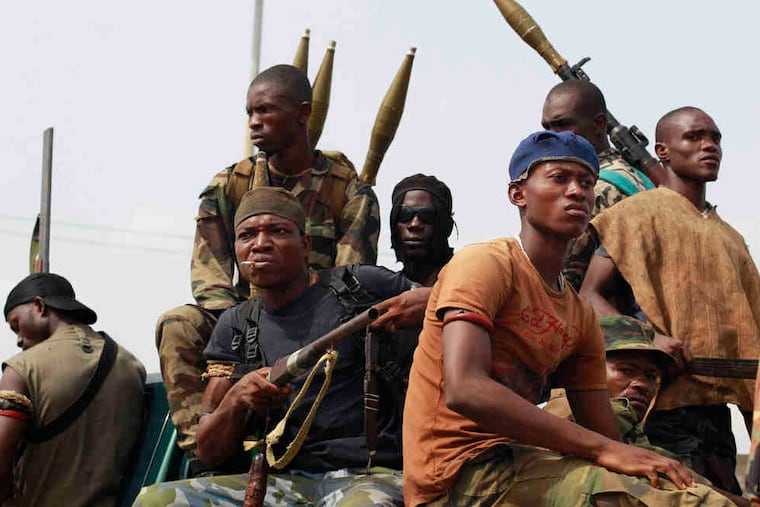International Crisis Group to get Eisenhower award at Rittenhouse hotel
Challenging the world to make peace possible, the International Crisis Group has spent the last 15 years trying to prevent, contain, and resolve armed conflicts.

Challenging the world to make peace possible, the International Crisis Group has spent the last 15 years trying to prevent, contain, and resolve armed conflicts.
Created by former American and British diplomats frustrated by the failure to avert slaughter in Somalia, Rwanda, and Bosnia, the ICG started out with a two-person office in London and small field operations in West Africa and the Balkans.
Today, 130 staffers gather facts on the ground in more than 70 of the world's most dangerous countries. ICG policy prescriptions - be they about nuclear proliferation, Islamist terrorism, civil wars, or crumbling regimes - reach a global audience of 200,000 subscribers, including 30,000 government, United Nations, and NATO decision-makers.
On Thursday, the group widely regarded as a global voice of conscience is to receive the Dwight D. Eisenhower Medal from Eisenhower Fellowships, a Philadelphia exchange program for mid-career professionals from around the world.
Eisenhower "viewed the fellowship as a path to transforming confrontation into collaboration, and ignorance into understanding," fellowship president John Wolf said. "That really describes to a T what ICG takes as its world mandate.
"Henry Kissinger said, 'Sometimes the urgent crowds out the important,' " Wolf added. "ICG makes sure important things don't get forgotten."
Half of the nonprofit ICG's $17 million budget comes from the foreign-aid coffers of 20 countries, including the United States. Individuals and foundations provide the rest.
ICG analysts operate in hot spots, including Sudan, Syria, and Yemen, where impacts are hard to measure.
"Proving a calamity was avoided is hard enough," ICG co-chairmen Christopher Patten and Thomas Pickering said in a recent statement. "Demonstrating that we have helped change the course of world events amid a cacophony of inputs seems close to impossible."
Still, the ICG says its role is particularly valuable in underreported conflicts. While the world focuses on Iraq, Afghanistan, and Libya, ICG also highlights violence in the Central African Republic's illegal diamond mining industry, and burgeoning organized crime in Guatemala.
For anyone who read ICG monthly CrisisWatch bulletins last year, the violence that followed elections in Haiti and the Ivory Coast were no surprise.
In 1953, on Eisenhower's first birthday in the White House, four Pennsylvania businessmen led by Scott Paper Chairman Thomas B. McCabe established Eisenhower Fellowships as an international leader-exchange program "to honor Ike's devotion to world peace."
Since 1988, the annual medal has gone to a public figure whose outreach fosters Eisenhower's vision of peace through international dialogue, including Nobel Prize-winning economist Amartya Sen, Presidents George H.W. Bush and Gerald Ford, and former secretaries of state.
This year the board broadened its focus to include organizations.
ICG president Louise Arbour is slated to accept the medal for her organization at a Rittenhouse Hotel reception led by fellowship chairman Gen. Colin Powell.
"This award is particularly significant for us, as we are the first organization to receive it," Arbour said in an interview this week.
"It represents a turning point in the recognition of civil society actors in the field of conflict prevention," she said, "and more broadly in the area of international peace and security."